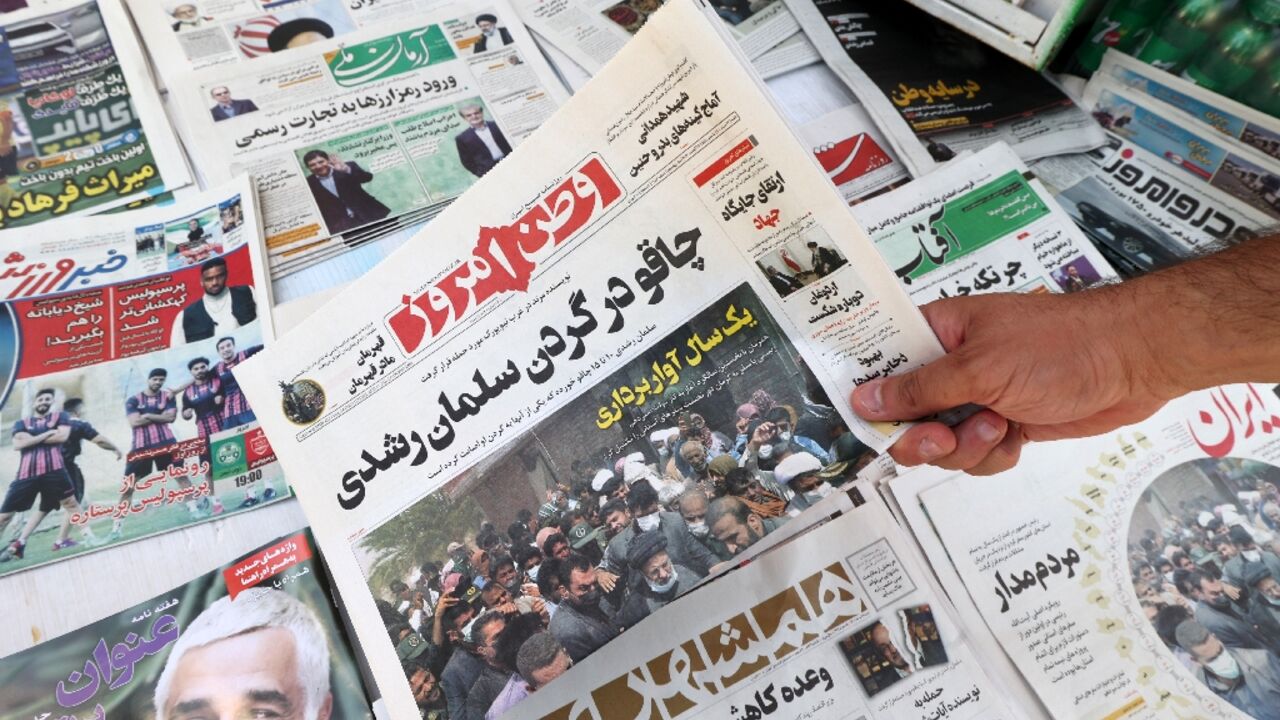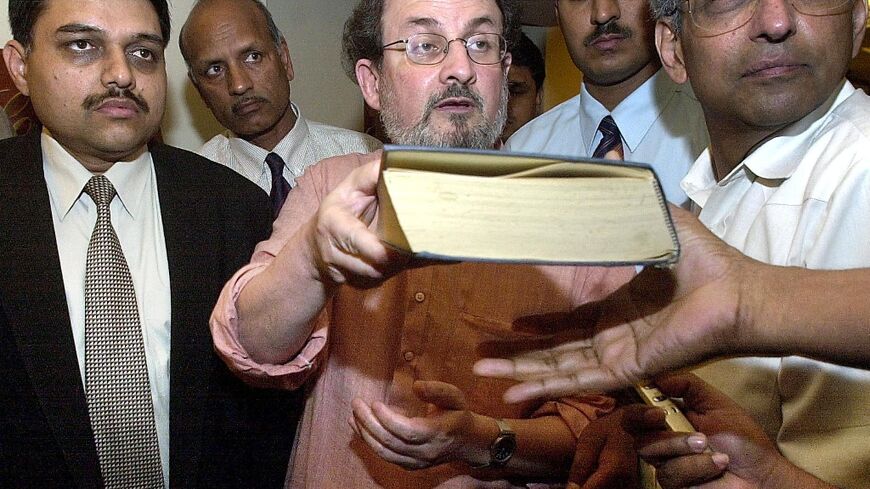In Iran, Rushdie attack backers speak out, rest keep mum

In Tehran's book market, the stabbing of British novelist Salman Rushdie was on everyone's lips Saturday, but only those who approved of the attack dared to speak publicly.
The author, who spent years in hiding after an Iranian fatwa ordered his killing, was on a ventilator in hospital after the attack Friday at a literary event in upstate New York.
More than 30 years after the publication of "The Satanic Verses", the book and its author remain deeply inflammatory in Iran, and when asked by AFP on Saturday nobody dared to openly condemn the stabbing, which has sparked outrage in the West.
The issue is all the more taboo because of the fatwa, or religious edict, issued by the founder of the Islamic republic, Ayatollah Ruhollah Khomenei, just months before his death in 1989.
The fatwa called for Rushdie to be put to death for renouncing the Muslim faith of his ancestors with the "blasphemous" novel.
"I was very happy to hear the news. Whoever it was (that carried out the attack), I would like to kiss his hand," said Mehrab Bigdeli, a man in his 50s who said he was studying to become a Muslim cleric.
- 'Send him to hell' -
"May God curse Salman Rushdie. Imam Khomeini sentenced him to death in a fatwa. He had been in hiding for years," Bigdeli added.
"Western governments spent millions of dollars on protecting him but Muslims decided to send him to hell," he said with a smile.
The attack comes at a sensitive moment in Iran's talks with major powers on reviving a 2015 nuclear deal abandoned by the United States in 2018, in return for the re-lifting of crippling US sanctions.
Iran hinted earlier on Friday that it might accept a final compromise submitted to the talks by European Union mediators in the hope of securing some respite for its troubled economy.
But Bigdeli said that to him, Khomeini's fatwa against Rushdie was more important than sanctions relief.
"Regardless of whether the nuclear deal is in jeopardy, the probable death of Salman Rushdie is more important," said the theology student, sporting the black shirt worn by the Shiite faithful during the mourning month of Ashura.
"We are willing to accept a nuclear deal if our religion, our Islam and our dignity are preserved."
- 'Negative impact' -
In the bookstores of Tehran's Enghelab Street, "The Satanic Verses" is nowhere to be found. As in multiple Muslim countries, the novel remains banned, although Rushdie's other works are available.
The street, which lies close to Tehran University and is mainly frequented by students, boasts a huge portrait of Khomeini, who placed a bounty on Rushdie's head.
"I was happy to hear the news," said a management student, who gave his name only as Ahmad.
"Salman Rushdie wrote a book and according to Imam Khomeini his execution was legitimate because he expressed blasphemous ideas in it," he said.
But the student acknowledged he was worried about the implications for a renewed nuclear deal and the lifting of sanctions.
"This incident may have a negative impact on the negotiations because the West may consider this action as being of terrorist nature. We have to see what will happen behind the scenes," he said.
Several people approached by AFP on the streets of Tehran walked off at the very mention of Rushdie's name, unwilling to speak on camera about such a controversial issue.
Iranian authorities have yet to make any official comment on the attack against Rushdie, but the country's conservative media presented his assailant as a hero.
"Bravo to this courageous and duty-conscious man who attacked the apostate and depraved Salman Rushdie in New York," wrote the ultra-conservative Kayhan newspaper, whose director is appointed by current supreme leader Ayatollah Ali Khamenei.
With the exception of reformist publication Etemad, Iranian media followed a similar line, describing Rushdie as an "apostate".
State-owned paper Iran said that the "neck of the devil" had been "cut by a razor".





